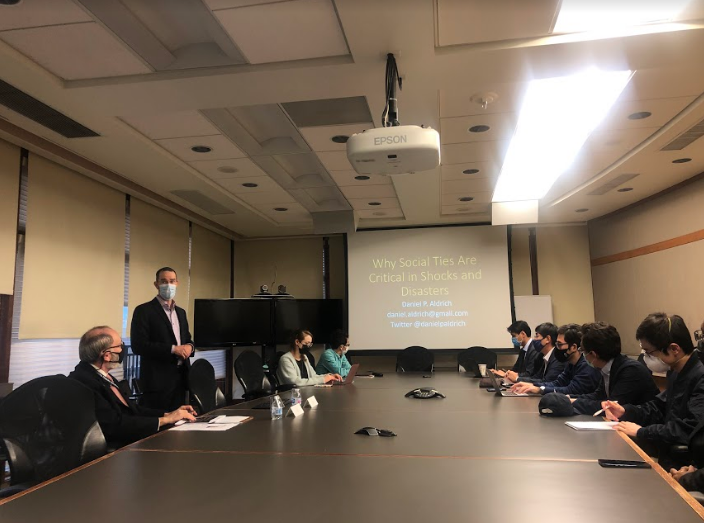Why Social Ties Matter in Shocks
Why Social Ties Matter in Shocks
On November 18th, the Edwin O. Reischauer Center for East Asian Studies held an in-person seminar with Dr. Daniel Aldrich, Professor of Political Science, Public Policy and Urban Affairs as well as Director of the Security and Resilience Studies Program at Northeastern University.

Professor Aldrich presented his work on the importance of social ties in responding to and recovering from disasters, in which he emphasized that different kinds of social linkages matter in different phases of shocks. Specifically, Dr. Aldrich argued that horizontal social ties within civil societies are important for initial survivals and mental health recoveries from disasters, whereas vertical ties with authorities are crucial for evacuations and rebuilding activities. The speaker also stressed that these social ties can be fostered intentionally, which has significant policy implications for countries and communities that have a higher possibility of facing disasters in the future. Additionally, Dr. Aldrich used his research on Japan’s 3/11 disasters, subsequent recoveries, and the current COVID-19 pandemic as evidence to show the positive role of social ties in mitigating harm from shocks.
During the Q&A session, Professor Aldrich answered questions from the audience about who should initiate the tie-building processes, how to do so, and whether different social contexts can lead to varying types of ties and in different ways of establishing them, among others.
Categories
© 2024 The Edwin O. Reischauer Center for East Asian Studies at the Johns Hopkins School of Advanced International Studies (SAIS), a division of the Johns Hopkins University. All Rights Reserved.
Sitemap | Custom WordPress Design, Development & Digital Marketing by time4design.


